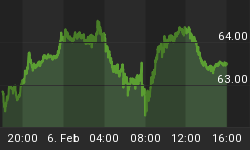The most common of all misconceptions today is that a weakening currency is fundamental to a healthy economy, or put another way, a strong currency is economically destructive. For decades this has been the fundamental belief of mainstream economists and the mainspring behind government policy. Even Switzerland, widely regarded as the leading exponent of non-interventionism, intervenes to keep the franc from rising against the euro.
Switzerland also intervened in the 1970s when she attempted to discourage capital inflows by imposing negative interest rates on deposits. But an unbiased observer of monetary affairs should have recognised inconsistencies in the basic assumption. How was it that Germany, in the face of a strong deutsche mark, and Japan with a strong yen, emerged from the destruction of WW2? And how is it that the prices of electronic goods can fall with tomorrow's products being sold for less than today's, when economists believe that prices have to rise for manufacturers to prosper?
Before answering these questions it should be noted that I avoided the commonly-used word "growth" for economic progress in framing the underlying misconception. This is because the concept of growth is confused with economic progress. GDP, which is encouraged to "grow" is the sum of all recorded transactions over a period, and lumps bad and good spending together. It is not the immeasurable progress of a society's condition.
Using the wrong measure for anything is always a bad way of proceeding, but it is perhaps the natural consequence of believing that an increase in the quantity of money and credit, the objective of official policies designed to weaken the currency, is the necessary stimulant for economic progress. However, all experience screams at us that this is not true.
The source of the error is a misunderstanding in the role of money in the economy. The truth is very simple and exposed by Say's Law: we make things to buy things, and money is only the temporary mechanism to translate our production into consumption. This being the case, money is neither the problem nor the solution.
Policies aimed at reducing the purchasing power of money are intended to fool people and businesses into unprofitable actions they would not otherwise undertake. For a brief period of time cheapening the currency lowers the cost of production, increasing apparent profits. The temporary improvement in business conditions is intended to encourage employment, and fuller employment encourages the spending to absorb more production. But this reckons without the fact that rising prices result, inevitably forcing people to shift their preferences away from money driving prices up even faster. Returns on capital prove to have been overestimated by businesses and they begin to cut their losses. False booms are always followed by busts.
Denying Say's Law is the mistake. An appreciation of the law's truths explains why falling prices, the same as a rise in the purchasing power of money, are not economically destructive. It explains German and Japanese post-war success and that of the titans of technology. The tragedy of our willful ignorance of a truth accepted before Keynes's false justification of state intervention is that we are condemned to repeat this most common of misconceptions until we banish economic progress altogether.















